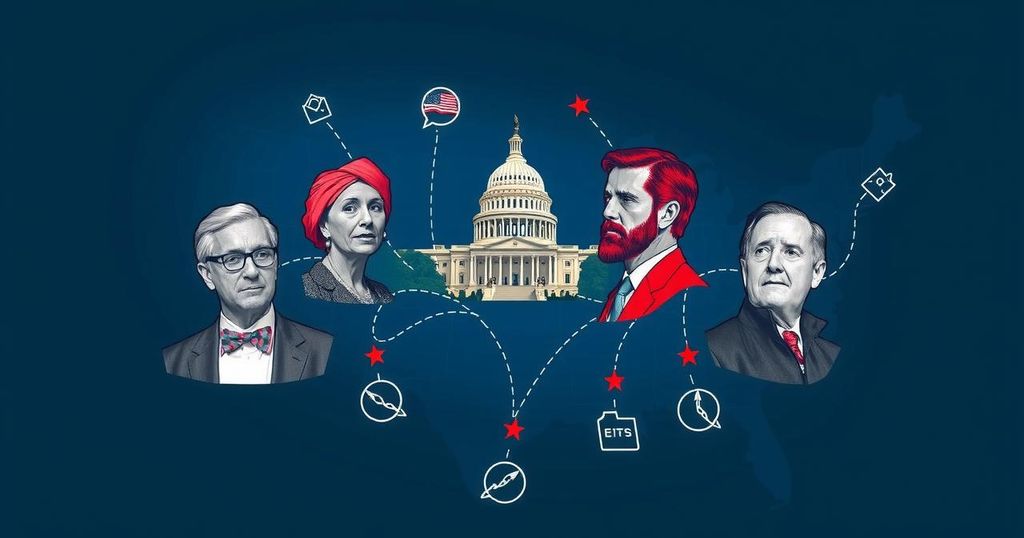Washington’s Election Dynamics: A Harris or Trump Outcome on the Horizon

In the forthcoming U.S. presidential election, candidates Kamala Harris and Donald Trump are in a close race, displaying unusual polling stability. Historical patterns of voter sentiment shifts have diminished, making turnout the primary focus for both campaigns. Additionally, the prospect of legal challenges poses further complexity for the electoral process. While definitive predictions remain elusive, there is speculation that Harris may ultimately win the election.
As the United States prepares for its presidential election on November 5, an atmosphere of uncertain anticipation envelops Washington. With only two weeks until the election, neither candidate, Kamala Harris nor Donald Trump, has established a definitive lead in polling. The past few months have shown an unusual stability in the race, wherein significant national and international events, such as conflicts in the Middle East and attacks against Trump, have failed to alter public opinion markedly. Current polling data reflects a consistently narrow margin between the two candidates, particularly in swing states crucial for determining the election outcome. Historical contexts reveal that such stability at this stage of the election cycle is uncommon. Past elections have frequently showcased substantial polling fluctuations, yet the contemporary political landscape presents a scenario where voter sentiment appears largely entrenched. Consequently, the focus has shifted from persuasion to voter turnout, with both campaigns aiming to engage the electorate more effectively. Notably, Harris’s campaign has mobilized a significant number of personnel across several battleground states to drive voter turnout, while Trump’s involvement continues to energize both his base and critics alike. Furthermore, the stakes for electoral integrity have escalated, as both parties anticipate contentious post-election challenges, especially if the results do not favor Trump. The Republican Party is devising a comprehensive legal strategy aimed at contesting potential outcomes, drawing lessons from their previous efforts. Ultimately, while analytic tools do not currently favor any candidate as the frontrunner, the prevailing sentiment, hesitant as it may be, leans toward an unpredictable election day. However, the bold prediction circulated among political commentators remains: Harris is poised to emerge victorious.
The article discusses the current political climate as the U.S. presidential election approaches, highlighting the unprecedented stability in voter sentiment in the lead-up to the election. Both candidates, Harris and Trump, find themselves in a statistically deadlocked race, raising questions about turnout strategies and the potential for post-election disputes. The article examines the implications of this stability and the evolving strategies by which both campaigns seek to motivate voter engagement and address electoral legitimacy concerns.
In conclusion, the election is characterized by an unusual level of polling stability, with Harris and Trump in a tight race and no clear frontrunner emerging. The focus is primarily on mobilizing voter turnout and preparing for potential election-related legal battles. As the election draws nearer, uncertainty looms, but prediction leans towards a Harris victory amidst this backdrop of electoral tension.
Original Source: ecfr.eu







